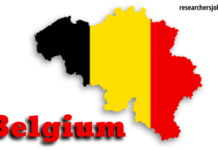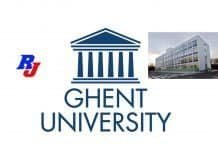SEED COFUND PhD Program: The SEED COFUND PhD program, funded by the European Union, invites applications for 40 fully funded early-stage researcher (ESR) positions. SEED, which stands for Societal, Energy, Environmental, Industrial, and Digital transitions, is a 60-month interdisciplinary, international, and intersectoral doctoral training program offered by IMT Atlantique. The program aims to nurture excellence in four key dimensions: thesis interdisciplinarity, internationality, cross-sector experience, and promotion of innovation.
- 🌍 SEED Program Overview:
- SEED stands for Societal, Energy, Environmental, Industrial, and Digital transitions.
- A 60-month interdisciplinary, international, and intersectoral doctoral training program co-funded by the European Union and offered by IMT Atlantique.
- Emphasizes four dimensions: thesis interdisciplinarity, internationality, cross-sector experience, and promotion of innovation.
- 🚀 Tracks and Mobility:
- Three tracks offered with different mobility and focus:
- Standard track (30 months at IMT Atlantique, international academic and industrial partners).
- Co-tutelle/academic co-supervision track (24 months at IMT Atlantique, 12 months with international academic co-supervision partner).
- Industrial-oriented track (24 months at IMT Atlantique, 9 months with industrial partner, 3 months with international academic partner).
- Three tracks offered with different mobility and focus:
- 👥 Coordinator and Partners:
- IMT Atlantique is the main coordinator and point of contact for the program.
- European Union co-funds the program as a Marie Sklodowska-Curie Action COFUND initiative.
- Involvement of numerous industrial and academic partners contributing financially and hosting ESRs during mobility phases.
- 🤝 SEED Network:
- 19 associated partners, mobility partners, and public organizations globally.
- Possibility for more partners to join as the program progresses (second cohort starts in 2025).
- 📚 PhD Applicants:
- Aim to recruit 40 PhD students from diverse backgrounds.
- Open to English-speaking candidates of all nationalities with residency restrictions.
- Details on application requirements and selection process available.
- 📅 Programme and Application Timeline:
- Total program duration is 60 months (2023-2028), with a 36-month doctoral training period.
- First cohort expected to start in 2024 and finish in 2027; second cohort in 2025-2028.
- Application period typically mid-November to 31 January each year.
- 📍 Geographical Location:
- Coordinated by IMT Atlantique, training provided at campuses in Brest, Nantes, or Rennes (France).
Designation: Early-Stage Researcher (ESR)
Research Area: Societal, Energy, Environmental, Industrial, and Digital Transitions
Location: IMT Atlantique’s Campuses (Brest, Nantes, or Rennes, France)
Eligibility/Qualification:
- English-speaking candidates of all nationalities.
- Candidates who have not resided in France for more than 12 months in the last 36 months.
- Bachelor’s degree in relevant fields.
Job Description:
- 60-month program (2023-2028) with a 36-month doctoral training period.
- Three tracks with varying mobility and focus options.
- Emphasis on interdisciplinary, international, and cross-sector experience.
- Thematic focus on transitions, including societal, energy, environmental, industrial, and digital transitions.
- Opportunity to work with numerous industrial and academic partners worldwide.
How to Apply: The application period is from mid-November to January 31 of the following year for each cohort. The application process is entirely online through the [dedicated website](Application for SEED PhD thesis).
Last Date for Apply: 31 January 2024
Disclaimer: The information provided is based on the source, and applicants are encouraged to verify details and check for updates on the official SEED website for the most accurate and up-to-date information. Views and opinions expressed are those of the author(s) and not necessarily those of the EU or the ERA. Neither the EU nor the granting authority can be held responsible for them.









